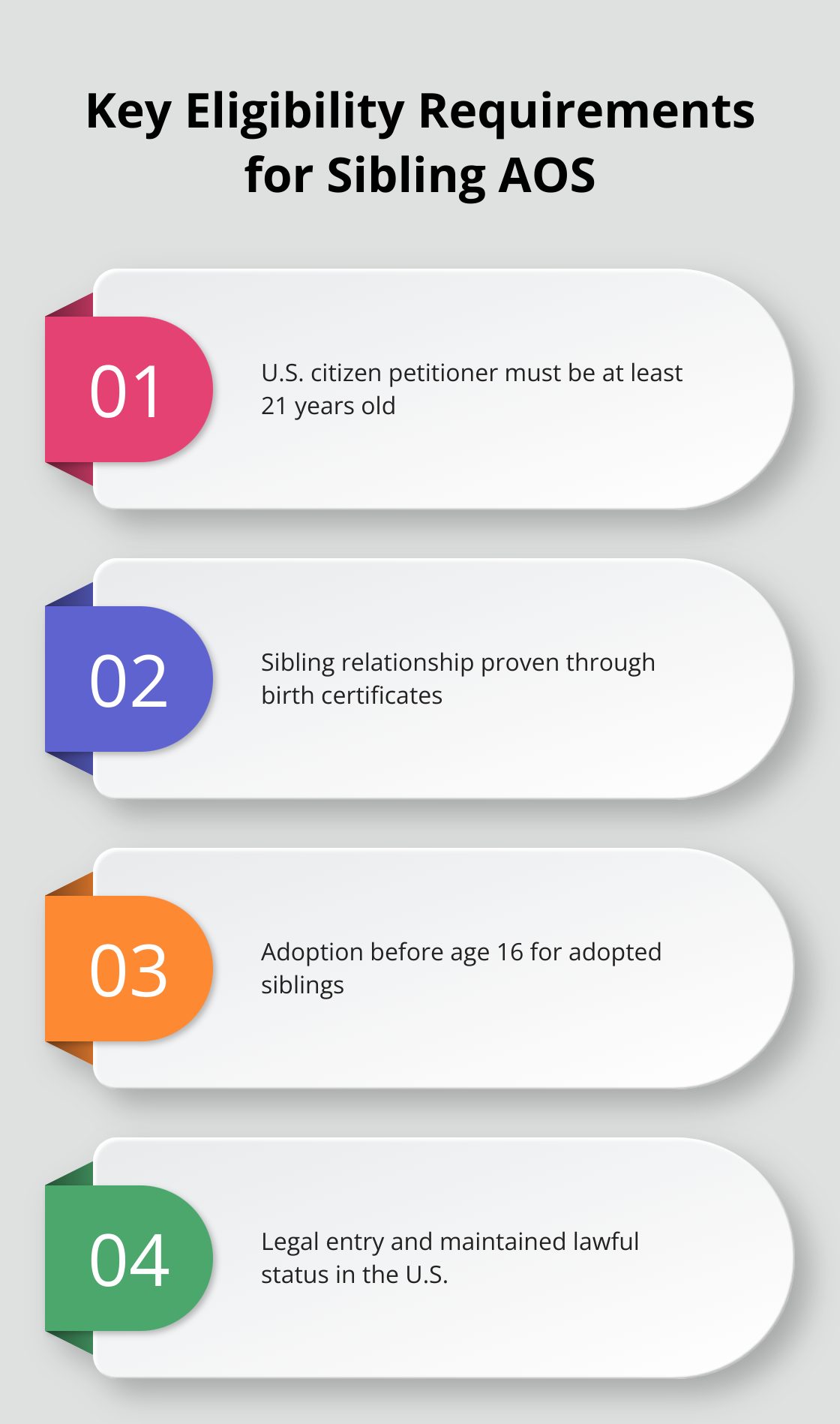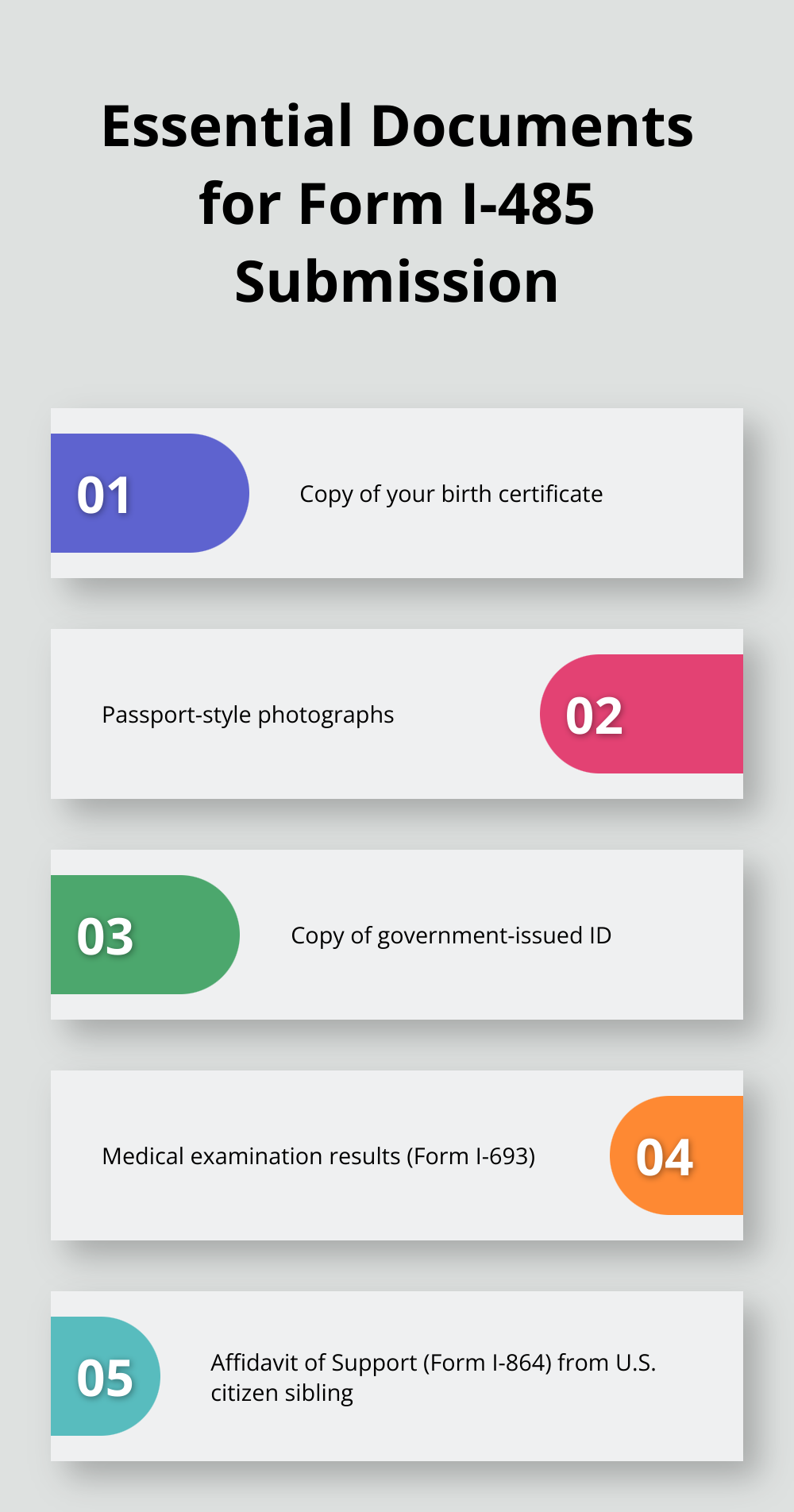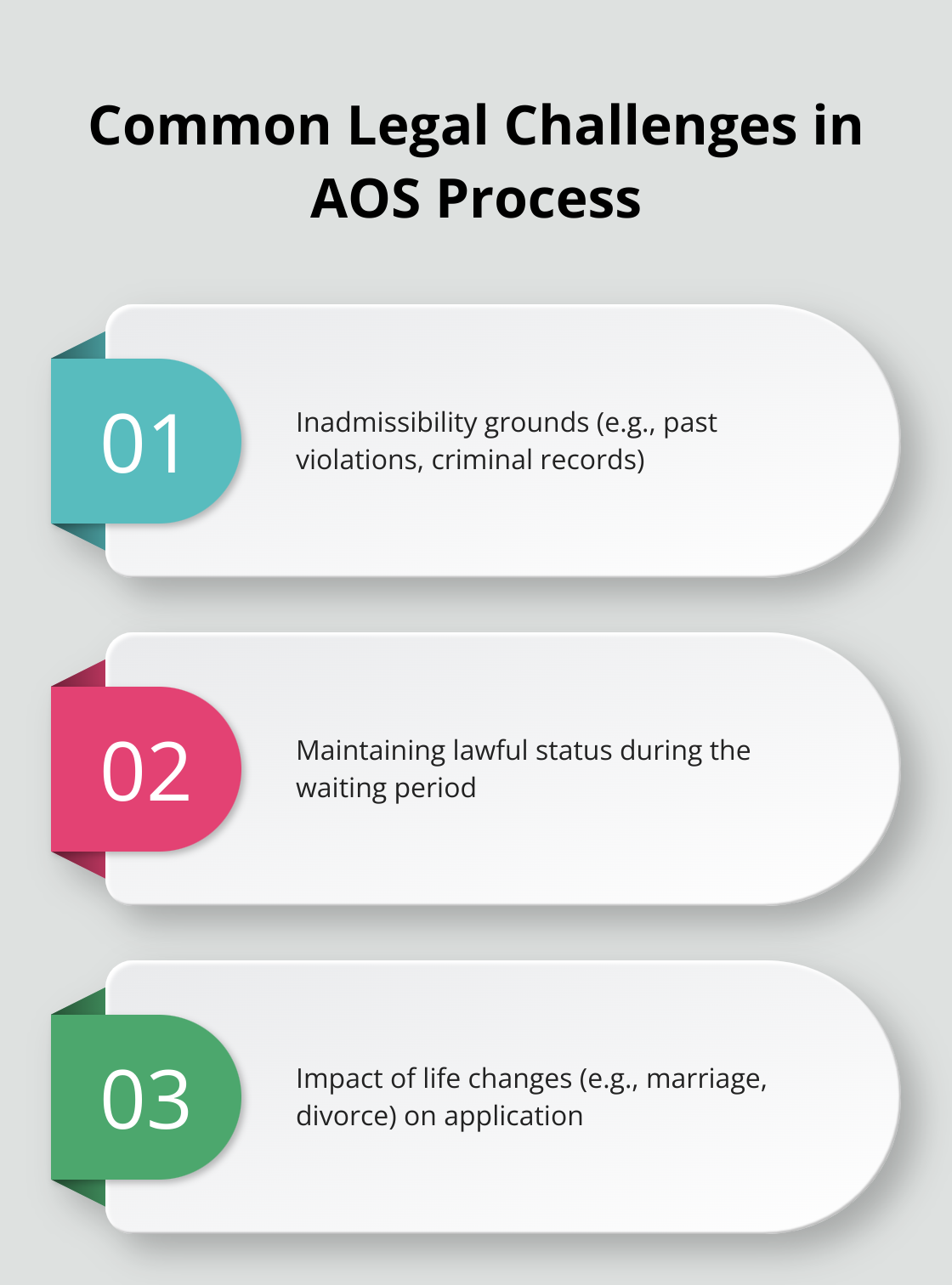
How to Apply for Adjustment of Status for Siblings
Navigating the process of Adjustment of Status for siblings can be complex and overwhelming. At Law Offices of Jeffrey A. Thompson, we understand the challenges families face when seeking to reunite in the United States.
This guide will walk you through the essential steps, requirements, and potential hurdles in applying for Adjustment of Status for siblings. We’ll provide practical advice to help streamline your application and increase your chances of success.
What Is Adjustment of Status for Siblings?
Definition and Process Overview
Adjustment of Status (AOS) allows eligible individuals already in the United States to apply for lawful permanent resident status without leaving the country. For siblings of U.S. citizens, this process serves as a pathway to obtain a green card and potentially become a U.S. citizen in the future.
The process starts when a U.S. citizen files Form I-130 (Petition for Alien Relative). After approval, the sibling must wait for their priority date to become current, which can take several years due to annual visa limits. Once the date is current, the sibling files Form I-485 (Application to Register Permanent Residence or Adjust Status) along with supporting documents.
Eligibility Requirements
To qualify for AOS as a sibling, the following requirements must be met:
- The U.S. citizen petitioner must be at least 21 years old.
- The sibling relationship must be proven through birth certificates showing at least one common parent.
- In adoption cases, the adoption must have occurred before either sibling turned 16.
- The sibling seeking adjustment must have entered the U.S. legally and maintained lawful status.
It’s important to note that permanent residents cannot petition for their siblings; only U.S. citizens have this privilege.

Benefits of Adjusting Status
AOS offers several advantages over consular processing:
- Siblings can remain in the U.S. during the application process, potentially avoiding long separations from family.
- Applicants may be eligible to apply for work authorization and travel documents while their application is pending.
- The process can be less disruptive to an applicant’s life, as they don’t need to travel abroad for visa interviews.
Required Documentation
The AOS process requires extensive documentation, including:
- Proof of sibling relationship (birth certificates, adoption decrees)
- Financial support evidence (Form I-864, Affidavit of Support)
- Medical examination results (Form I-693)
- Passport-style photographs
- Copy of government-issued ID
Potential Challenges
While AOS can be beneficial, applicants may face challenges such as:
- Long processing times (often several years)
- Complex paperwork and legal requirements
- Potential issues with maintaining lawful status during the waiting period
Given these complexities, many applicants find it helpful to seek professional legal assistance. The Law Offices of Jeffrey A. Thompson, for example, specialize in immigration law and can provide expert guidance throughout the AOS process.
As we move forward, let’s explore the step-by-step guide to applying for Adjustment of Status for siblings, which will provide a more detailed look at each stage of this complex process.
How to Apply for Adjustment of Status for Siblings
The application process for Adjustment of Status (AOS) for siblings involves several important steps. This process requires careful attention to detail and a thorough understanding of immigration law. Let’s break down each stage to help you navigate this complex journey more effectively.
Filing Form I-130
The AOS process begins with the submission of Form I-130, Petition for Alien Relative. This form establishes the sibling relationship between the U.S. citizen, lawful permanent resident, or U.S. national petitioner and the beneficiary. Accuracy is essential when completing Form I-130, as errors or omissions can result in delays or denials.
Key documents to include with Form I-130:
- Birth certificates for both siblings (showing at least one common parent)
- Adoption decree (for adopted siblings, proving adoption before age 16)
- Marriage certificates and termination documents from prior marriages (for step-siblings)
Waiting for Priority Date
After submitting Form I-130, you will receive a receipt notice with a priority date. This date determines when a visa becomes available. The waiting period for sibling-based visas often spans several years due to annual visa limits.
During this waiting period:
- Maintain lawful status in the U.S.
- Avoid actions that could jeopardize your eligibility
- Check the Visa Bulletin regularly to track your priority date’s progress
Submitting Form I-485
Once your priority date becomes current, you can file Form I-485 (Application to Register Permanent Residence or Adjust Status). This comprehensive form requires careful attention to detail.

We recommend submitting Form I-765 for work authorization and Form I-131 for advance parole simultaneously with your I-485 application. This allows you to work and travel while your AOS application is pending.
Overcoming Common Challenges
The AOS process for siblings presents several challenges:
- Long processing times (often several years)
- Complex paperwork and legal requirements
- Maintaining lawful status during the waiting period
To address these challenges, consider seeking professional legal assistance. While it’s possible to navigate this process independently, many applicants find that expert guidance can significantly improve their chances of a successful application.
Preparing for the Next Steps
As you progress through the AOS process, it’s important to stay informed about potential obstacles and how to overcome them. In the next section, we’ll explore common challenges in more detail and provide strategies to address them effectively.
Overcoming AOS Challenges for Siblings
Extended Processing Times
The Adjustment of Status (AOS) process for siblings often involves lengthy waiting periods. As of May 2025, the U.S. Department of State’s Visa Bulletin shows the priority date for F4 category (siblings of U.S. citizens) in the DAY-MONTH-YEAR (dd-mmm-yy) format.
To manage this extended timeline:
- Check the Visa Bulletin regularly for priority date updates.
- Maintain lawful immigration status throughout the waiting period.
- Renew passports, work permits, and other essential documents well before expiration.
- Consider how life changes (marriage, children, career shifts) might affect your application.
Legal Complexities
The AOS process involves intricate legal requirements that can challenge applicants. Common legal issues include:

To address these legal challenges:
- Review your immigration history and identify potential issues early.
- Consult with an experienced immigration attorney to navigate complex legal matters.
- Address potential legal issues before they become roadblocks in your application process.
Paperwork Management
The AOS application process requires extensive documentation and precise form completion. Errors or omissions can lead to delays or denials. To effectively manage the paperwork:
- Compile a comprehensive list of required forms and supporting documents.
- Maintain a well-organized system for all your immigration-related paperwork.
- Review all forms and documents multiple times for accuracy and completeness.
- Make copies of everything you submit to USCIS for your records.
Financial Requirements
Meeting financial requirements presents another challenge in the AOS process. The U.S. citizen petitioner must demonstrate the ability to support their sibling financially. This involves:
- Completing Form I-864 (Affidavit of Support)
- Providing proof of income (tax returns, pay stubs)
- Meeting the minimum income requirement (125% of the Federal Poverty Guidelines)
If the petitioner’s income falls short, they may need to find a joint sponsor or use assets to meet the requirement.
Medical Examination
The medical examination (Form I-693) can present unexpected challenges. Applicants must:
- Choose an authorized civil surgeon from the USCIS list
- Complete required vaccinations (which may vary based on age and medical history)
- Undergo tests for communicable diseases
The examination results are valid for two years from the date the civil surgeon signs Form I-693, so timing is important.
Final Thoughts
The Adjustment of Status process for siblings demands patience, attention to detail, and a deep understanding of immigration law. Each step requires careful consideration and precise execution, from filing Form I-130 to submitting Form I-485 and managing long waiting periods. The journey presents various challenges, including maintaining lawful status, meeting financial requirements, and addressing potential legal issues.
Professional legal assistance can significantly improve your chances of a successful application for Adjustment of Status for siblings. Law Offices of Jeffrey A. Thompson specializes in immigration law and provides expert guidance throughout the AOS process. Our team understands the nuances of family-based immigration and can help you navigate potential obstacles (ensuring your application is as strong as possible).
The path to permanent residency through Adjustment of Status for siblings may be long, but proper preparation and guidance can lead to a rewarding outcome. We at Law Offices of Jeffrey A. Thompson support you every step of the way, helping you achieve your immigration goals and reunite with your family in the United States. Our commitment to your success remains unwavering throughout this complex process.


